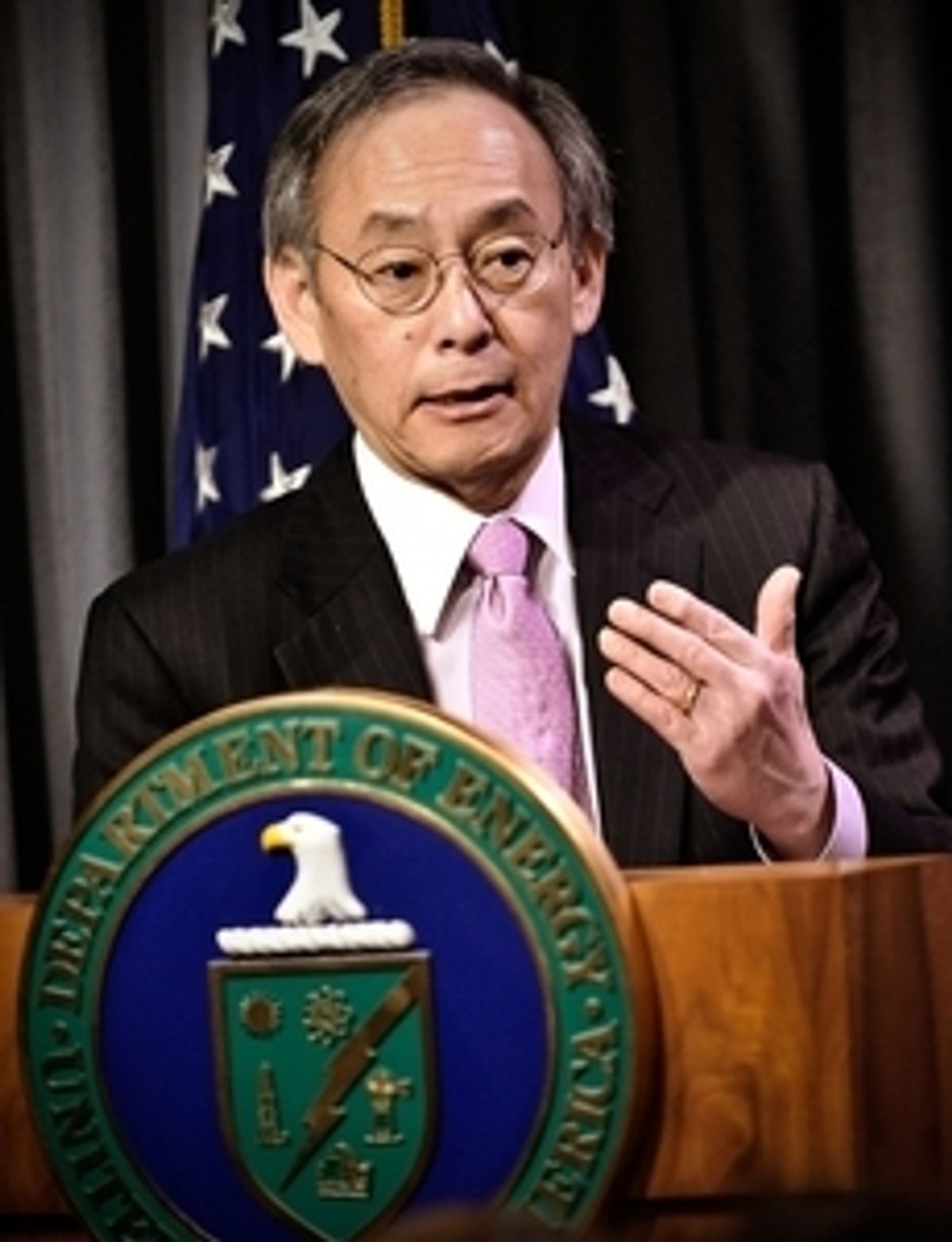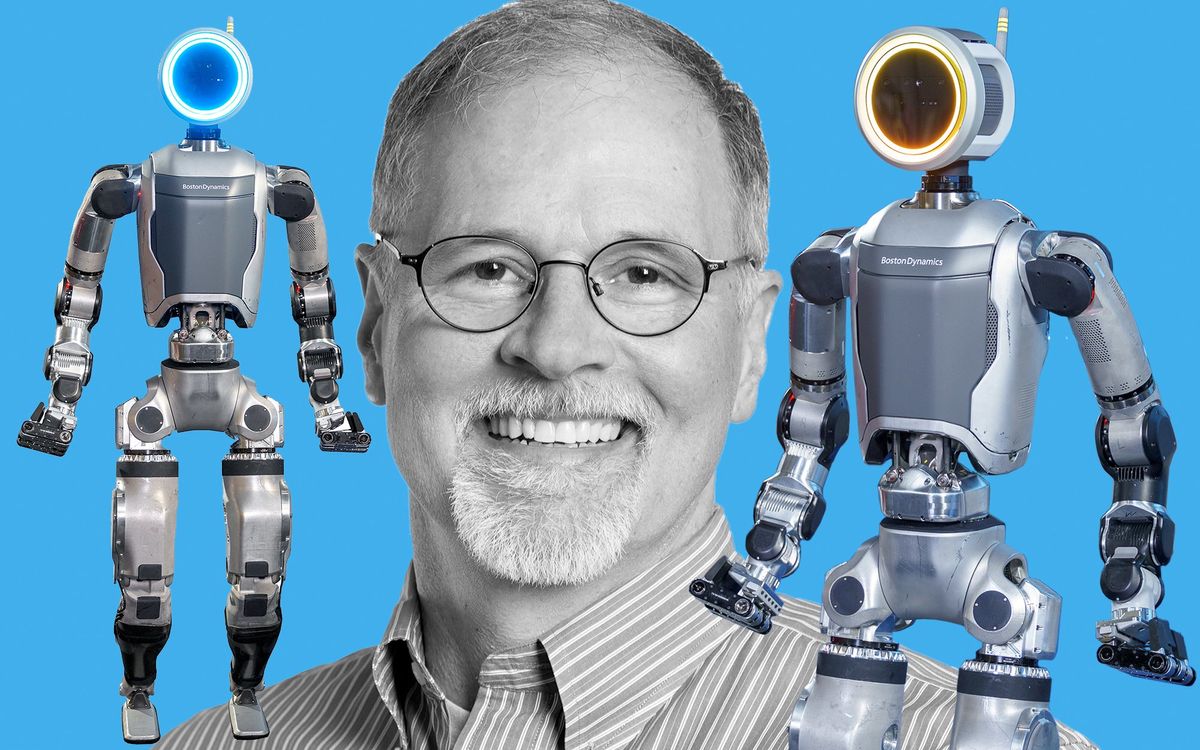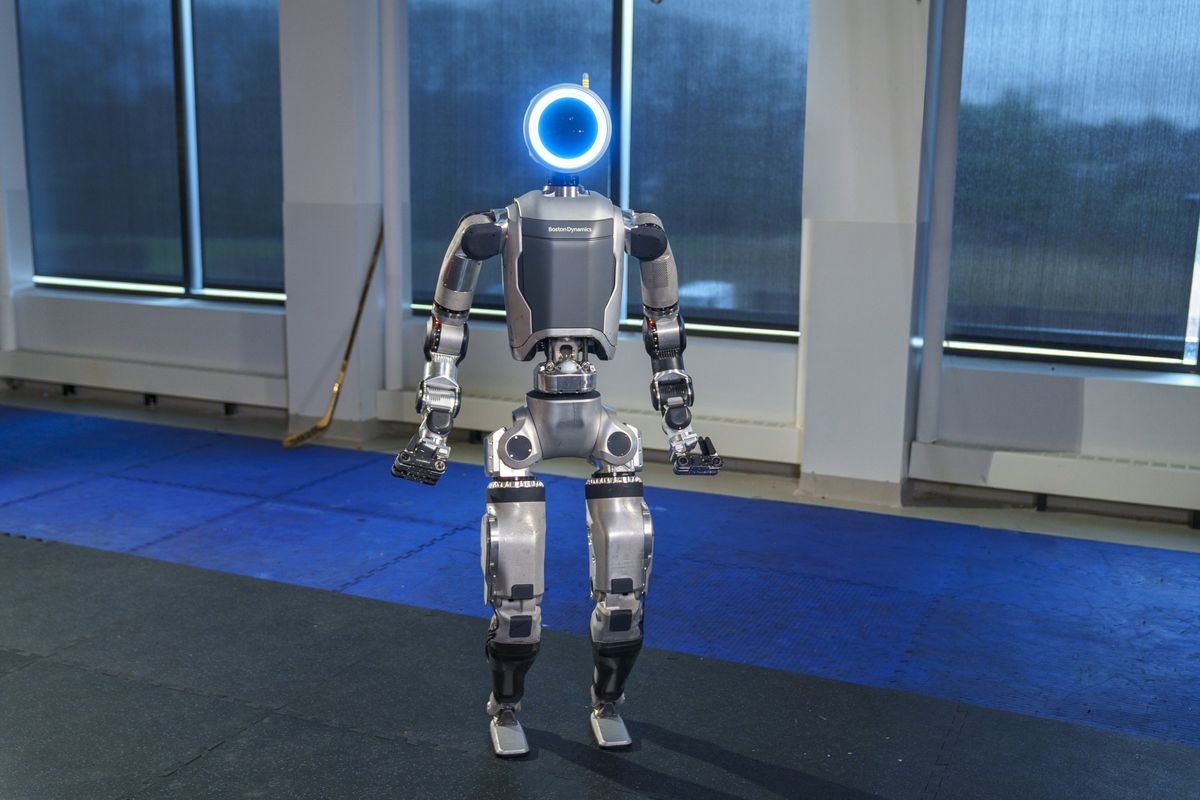The jury is out on how effective Nobelist Steven Chu has been as Secretary of Energy, and how his tenure will be remembered. But it can be safely said that his farewell letter will go down as one of the most thorough, detailed, outspoken and even aggressive missives ever left by a departing Cabinet member. The letter is as interesting for what it leaves unsaid as for what it says--but what it does say is plenty interesting, and the way Chu said things is interesting too.
Chu’s letter is not the usual three or four paragraphs, trumpeting accomplishments in broad terms and signing off with a few tried-and-true clichés. At 3,781 words, it is roughly the length of a college term paper or the manuscript for a standard magazine article.
Chu starts by taking credit for making ARPA-E--the Energy Department's counterpart to the prestigious Defense Advanced Projects Research Agency, created during the previous presidency—an agency that has "earned the respect of industry and academia for its outstanding funding choices, and active, thoughtful program management." Further, he asserts that the spirit of ARPA-E has infused other Energy Department programs like Sunshot and the Sunshot Challenge, in which DOE calls upon the private sector to get the cost of photovoltaic installations down to $1/Watt, corresponding to a levelized cost of electricity of about 6 cents per kilowatt-hour, which he says is the anticipated long-term cost of electricity generated from natural gas.
Equally bold goals were set, says Chu, for hybrid electric vehicles and electricity storage.
Without referring to highly publicized setbacks like the Solyndra bankruptcy or the A123 near-bankruptcy, Chu implicitly takes some credit for strong progress in renewables: He points out that photovoltaic installations have doubled in each of the three years, and that wind led new investments in energy generation last year, accounting for 42 percent. Somewhat inconsistently, perhaps, he says wind is expected to achieve grid parity within ten years--even though, years before Obama took office, wind energy was being installed by some estimates at an average cost of $1/W, the level Chu equates with grid parity in his discussion of photovoltaics.
As for DOE's investment setbacks, Chu warns that in the future, "The test for America’s policy makers will be whether they are willing to accept a few failures in exchange for many successes." As a benefiicary himself during his early years as working scientist, Chu does not neglect to mention DOE's extensive programs in basic science. On the other hand, he makes no mention whatsoever of the revolution in unconventional gas--what goes by the name of fracking--presumably because DOE's role in that revolution has indeed been negligible.
When Chu was appointed energy secretary, I raised the question tongue in cheek, of whether he was too smart for the job. Actually, the word "smart" appears nowhere in his farewell letter, and nor does the phrase "smart grid"—even though DOE's multi-billion-dollar smart grid investment program was a major element in the Obama Administration's 2009 stimulus bill (ARRA). That omission is a telling commentary on just how far realization of the smart grid has fallen short of expectations in the last few years.
The word "nuclear," on the other hand, appears more than a dozen times, not only in the context of energy but also in terms of weapons stockpile management, a major DOE responsibility. In that connection Chu credits DOE with helping reduce risks of nuclear weapons sustantially: "Our nuclear security teams have removed 1,340 kilograms of highly enriched uranium … including cleaning out 8 countries of all highly enriched uranium," he says with some force. More dubiously, he claims that 10 percent of U.S. electricity is generated from uranium once in Soviet nuclear weapons--that would imply half of U.S. nuclear electricity is generated from Soviet uranium, which cannot be right (or so it seems to me).
Chu does not mention progress in encouraging innovative new nuclear reactor designs, even though this important subject was a stated policy objective as long ago as Bill Clinton's presidency.
Without crediting DOE or even mentioning the dramatic drop in U.S. greenhouse gas emissions (to be discussed in detail soon, in this space), Chu ends his speech with a ringing call for stronger U.S. climate policy, with a number of bulleted points, which I am excerpting as follows:
- "The average temperature of our planet is rising, with majority of the temperature increase occurring in the last thirty years. During the three decades from 1980 to 2011, the number of violent storms, floods, droughts, heat waves, wildfires, as tabulated by the reinsurance company Munich Re, has increased more than three-fold. They also estimate that the financial losses follow a trend line that has gone from $40 billion to $170 billion dollars per year. Most of those losses were not insured, and the country suffering the largest losses by far is the United States. "
- "The overwhelming scientific consensus is that human activity has had a significant and likely dominant role in climate change. There is also increasingly compelling evidence that the weather changes we have witnessed during this thirty year time period are due to climate change."
- "Virtually all of the other OECD countries, and most developing countries including China, India, Mexico, and Brazil have accepted the judgment of climate scientists."
- "A few short decades later, we don’t want our children to ask, 'What were our parents thinking? Didn’t they care about us?' ”
Perhaps Chu does not take any credit for reduced U.S. greenhouse gas emissions, even though DOE has done a of things to further that result, because it has been a stealth climate policy, not officially mentionable. But that's just a theory. Chu does not appear to be looking over his shoulder much in his frank farewell.



